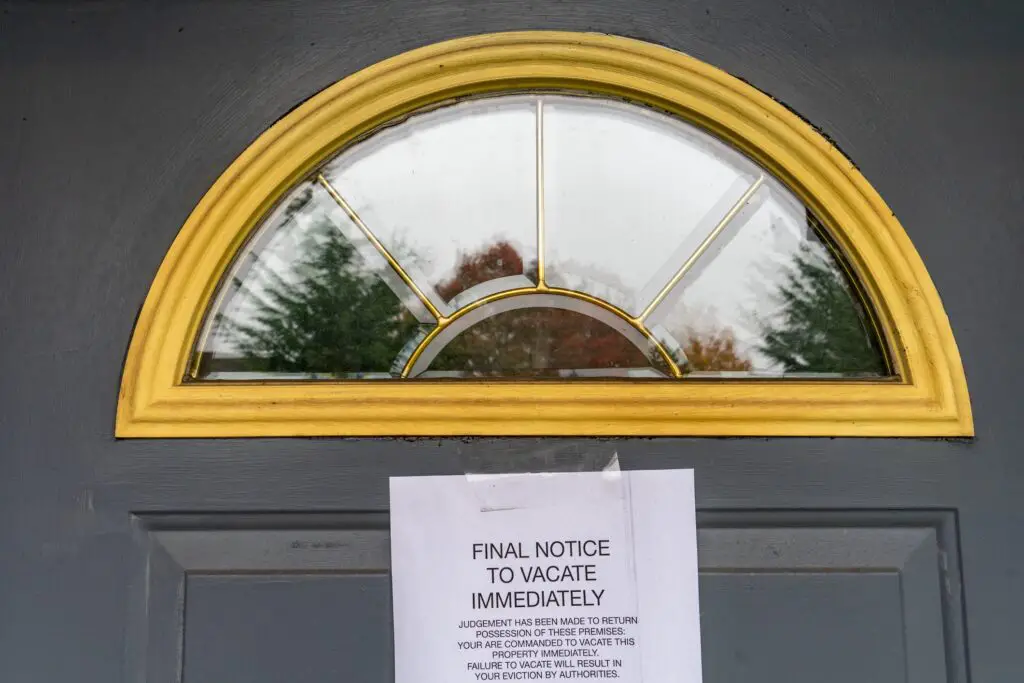Evicting someone who doesn’t have a lease agreement can be a complex process, as it often hinges on local laws and the specifics of the tenancy situation. This type of arrangement is typically considered a month-to-month tenancy or an at-will tenancy, and while the lack of a formal lease can make eviction proceedings slightly more nuanced, landlords still have legal avenues to pursue eviction when necessary. This article outlines a general process for evicting someone without a lease, bearing in mind that specific steps may vary depending on your location.
Understanding Tenant Rights
First and foremost, it’s essential to recognize that tenants without a lease still have rights. These rights can include the right to a habitable living environment, the right to privacy, and protection against unlawful eviction. The absence of a lease does not negate these rights, and landlords must follow a legal eviction process.
Reviewing Local Laws
The eviction process is highly regulated and varies significantly from one jurisdiction to another. Before taking any action, landlords should familiarize themselves with local landlord-tenant laws. These laws will detail the reasons you can evict a tenant (e.g., non-payment of rent, violation of rental agreement terms, damage to the property), the notice period required, and the legal process for eviction.
Providing Proper Notice
Even without a lease, landlords must provide tenants with a written notice to vacate the property. The required notice period often ranges from 30 to 60 days, depending on local laws. This notice should clearly state the reason for eviction (if applicable) and the final date by which the tenant must leave the property.
Filing for Eviction
If the tenant does not vacate by the specified date, the landlord may then file for eviction with the local court. This typically involves submitting documentation, including evidence of the notice provided to the tenant and any other relevant information (e.g., records of unpaid rent).
Court Proceedings
Once an eviction case is filed, a hearing date will be set. Both the landlord and the tenant will have the opportunity to present their case before a judge. Landlords should come prepared with all relevant documentation and evidence to support their claim for eviction.
Execution of Eviction
If the judge rules in favor of the landlord, they will issue an eviction order. In most jurisdictions, the local sheriff’s department or another law enforcement agency is responsible for enforcing the eviction. Landlords should not attempt to physically remove the tenant or their belongings from the property themselves.
Avoiding Illegal Eviction Practices
Landlords must avoid “self-help” eviction practices, such as changing the locks, removing the tenant’s belongings, or shutting off utilities, as these actions can lead to legal penalties.
Consider Mediation
In some cases, mediation can be a beneficial way to resolve disputes without going to court. This involves a neutral third party helping the landlord and tenant reach a mutually agreeable solution.
Evicting someone without a lease requires careful adherence to legal procedures and local laws. Landlords should ensure they provide proper notice, follow the legal eviction process, and avoid taking matters into their own hands. Because laws vary by location, consulting with a local attorney familiar with landlord-tenant law can be invaluable in navigating this process.
Navigating the Emotional and Ethical Considerations
In addition to the legal aspects of eviction, landlords should also consider the emotional and ethical dimensions of evicting a tenant, especially when there is no formal lease agreement in place. These situations can sometimes arise out of informal arrangements, such as when renting to friends, family, or acquaintances without a written agreement. It’s crucial to handle these scenarios with empathy and fairness, striving to maintain relationships while also protecting your property and rights.
Communication is Key
Open and honest communication between the landlord and tenant can often prevent the need for eviction. Before initiating the eviction process, try discussing the issues with the tenant to see if a resolution is possible. Sometimes, a tenant may be unaware of the severity of the situation or may be going through temporary difficulties. A conversation might lead to an agreement that works for both parties, such as a payment plan for overdue rent or a commitment to address behavior that violates the informal rental agreement.
Documentation and Records
Even in the absence of a formal lease, keeping detailed records is vital. Document all interactions with the tenant, including dates, times, and the content of conversations related to tenancy issues. If payments are made, keep records of those transactions. Should the situation escalate to eviction, these documents can provide important evidence in court.
Respecting Privacy and Legal Boundaries
Landlords must respect the privacy of their tenants and adhere to legal boundaries throughout the eviction process. This includes entering the property only in accordance with local laws, typically requiring notice before entry, except in emergencies. Violating a tenant’s privacy or attempting to intimidate or harass them into leaving can lead to legal repercussions.
After the Eviction
Following a successful eviction, it’s important for landlords to inspect the property, assess any damages, and determine what repairs or maintenance are needed before re-renting the space. It’s also a good time to reflect on the experience and consider if changes to the rental process could prevent future issues, such as implementing a formal lease agreement for all future tenancies.
Legal Consultation and Assistance
Given the complexity of eviction laws and the potential for legal challenges, consulting with a lawyer specializing in landlord-tenant law is highly recommended. A legal professional can offer guidance tailored to your specific situation, help prepare the necessary documentation for court, and represent you during legal proceedings. This step is crucial in ensuring that the eviction process is conducted fairly, legally, and as smoothly as possible.
Evicting a tenant without a lease is a challenging process that requires careful attention to legal, emotional, and ethical considerations. By understanding and following local eviction laws, maintaining open lines of communication, and treating tenants with respect and fairness, landlords can navigate these difficult situations effectively. Remember, while eviction might sometimes be necessary, it’s always best to aim for resolutions that minimize conflict and uphold the dignity of all involved.







